In today's fast-evolving financial landscape, technology is steadily lowering the entry barriers for investors, and real estate is no exception. Crowdinvesting in real estate allows you and other investors to collectively fund property ventures and get a share of lucrative real estate assets without substantial capital upfront. This article will show you how crowdinvesting works, highlight some crowdfunding platforms, and explore a few investment cases.
What is Crowdinvesting?
Crowdinvesting is a way to raise money by offering a group of investors a chance to invest in a business or project in exchange for a share of the profits or ownership. In real estate, this means an enterprise offers an investment opportunity in property, whether it is development or purchase, to a group of potential investors. If enough people decide to invest and the needed funds are raised, the project moves forward, and each investor gets a share in the real estate venture. If the funding goal isn’t reached, the money is returned to the investors. So, with crowdinvesting, people can invest in real estate projects that might otherwise be out of reach.
Crowdfunding vs Crowdlending vs Crowdinvesting
While all three terms—crowdfunding, crowdlending, and crowdinvesting—fall under the broad umbrella of crowdfunding, they each serve different purposes and have distinct outcomes.
Crowdfunding
Crowdfunding originally emerged during the 2008 financial crisis, when banking credits became too difficult for small businesses to access. Today, crowdfunding mostly isn't about making a financial return but about supporting a project in exchange for a tangible result, like a product or service. This approach is common in creative projects, non-profits, and one-off product launches, such as new gadgets or games, where backers contribute funds with the expectation of receiving the final product, not a share of profits. This is precisely the purpose of leading crowdfunding platforms like GoFundMe and Kickstarter. Also, crowdfunding has become a highly effective and popular method for organizing charity.
Crowdlending
Crowdlending involves lending money to a business or individual with the expectation of being repaid with interest. It serves as an alternative to traditional bank loans and functions in a manner similar to a bond. The investor doesn't gain any ownership in the business but earns a return through interest payments. This method is particularly suited for businesses with high margins that can quickly generate revenue and repay the loan.
Crowdinvesting
Crowdinvesting is about investors providing funds in exchange for a stake in a business or project, entitling them to a share of the profits or ownership. This approach is especially well-suited to real estate, where the benefits of shared ownership typically outweigh the complexities of having multiple co-owners. In contrast, crowdinvesting in startups or smaller businesses can be more challenging, as too many co-owners can complicate decision-making and potentially hinder the business's success.
Given these distinctions, we'll primarily refer to crowdinvesting, as it aligns best with real estate ventures, which are our main focus.
How Crowdinvesting Works in Real Estate?

As discussed before, crowdinvesting in real estate is a process that allows multiple investors to collectively fund a property venture, whether it's the purchase of an existing property or the construction of a new one. The anticipated outcome of such a venture can be either revenue from resale or rental income.
Here's how the crowdinvesting process typically works:
- Finding an investment enterprise: A real estate agency or specialized platform identifies a promising real estate investment opportunity.
- Structuring the enterprise: Subsequently, the organizer of the enterprise establishes a legal entity to hold the property. This entity defines the investment structure and safeguards the rights of the investors. In certain cases, this process may also include tokenization, where digital tokens represent ownership shares.
- Investment offering and fundraising: The real estate deal is then presented to potential investors through a crowdinvesting platform. Investors can review the project details, financial projections, and potential returns before deciding how much they want to invest. Once a sufficient number of investors commit funds, there is enough capital to acquire or develop the property. If the full amount is not raised, the funds are returned to the investors.
- Property acquisition or development: Once the funds are secured, the property is either purchased or the development begins. The real estate platform or a professional management team typically handles the day-to-day operations, including leasing, maintenance, and construction management.
- Exiting investment or collecting passive income: Once the property is acquired or construction is completed, the enterprise can either resell the property for a profit, sharing the proceeds with investors, or hold onto it to generate rental income. Investors receive regular rental income or can sell their stakes through a secondary market to exit the investment whenever they choose.
As you may see, crowdinvesting democratizes access to real estate investment opportunities, allowing investors of all sizes to participate in projects that were once reserved for institutional investors or high-net-worth individuals.
Real Estate Crowdinvesting Platforms
In recent years, a large number of real estate crowdinvesting platforms have emerged, making it easier for individuals to invest in property ventures with varying levels of capital. Here’s a look at five notable platforms and what they are best known for:
Fundrise
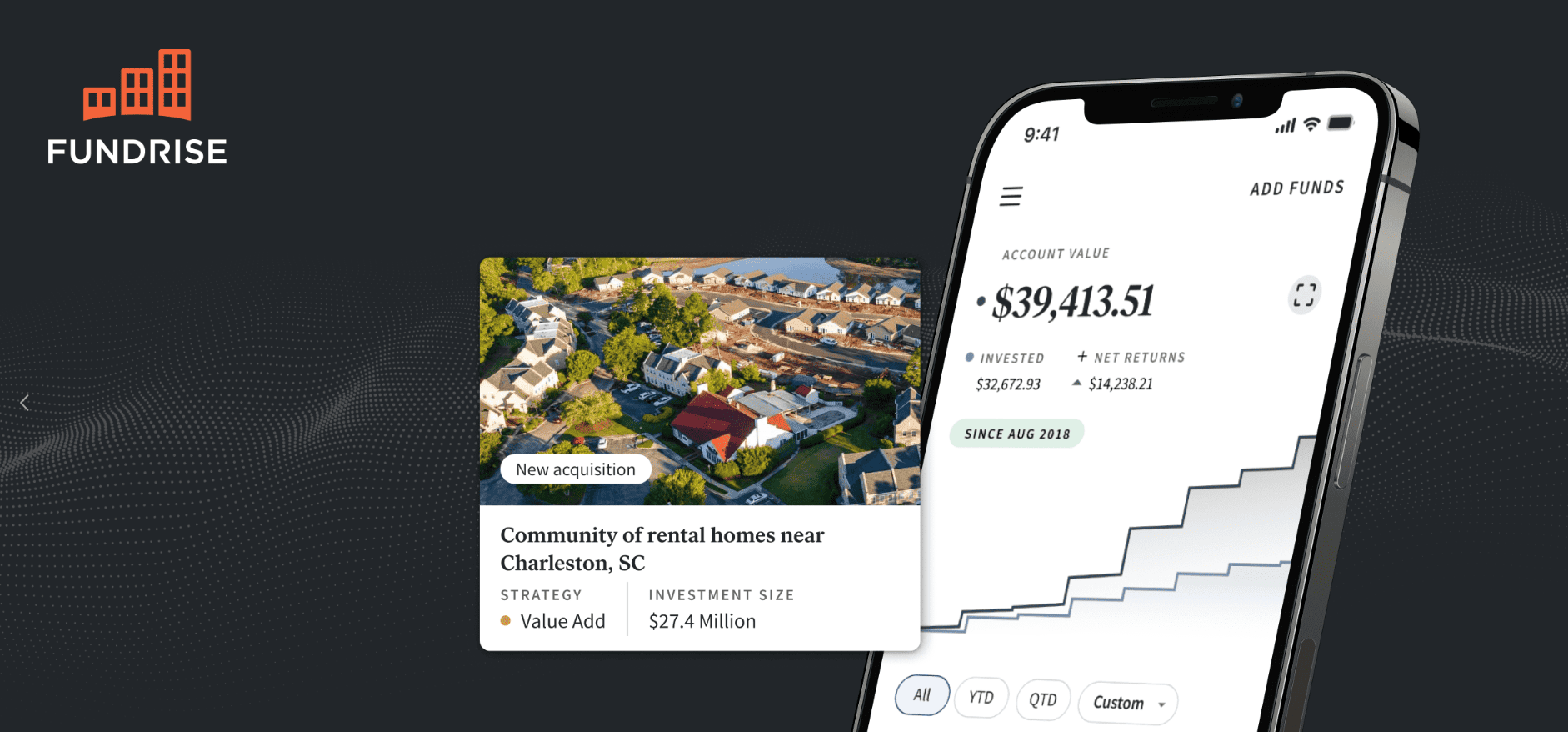
As one of the earliest and most successful real estate crowdfunding platforms, Fundrise has built a reputation for making real estate investments accessible to new investors. The platform offers a diverse portfolio of U.S. real estate projects, including both debt and equity investments. The platform also offers a range of investment plans, including retirement accounts (IRAs).
Investment minimums: $10 for brokerage accounts and $1,000 for IRAs.
Fundrise is a great option for beginners looking for a straightforward entry into real estate investing and for seniors looking for a simple interface for retirement.
Binaryx Platform
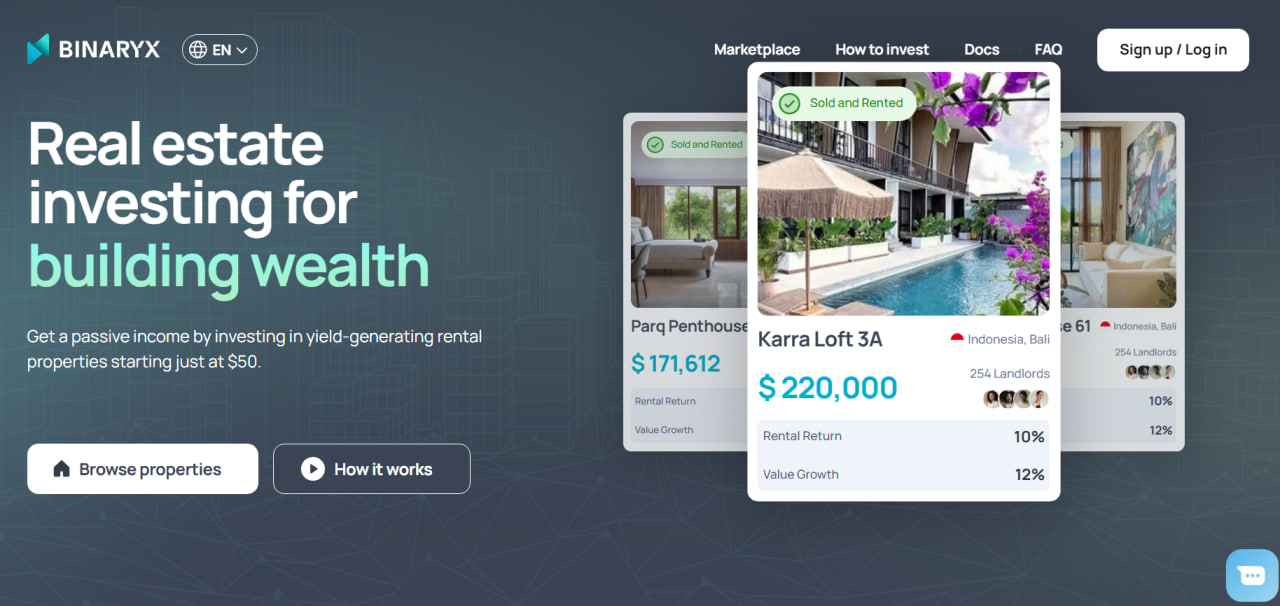
The Binaryx Platform stands out in the real estate crowdinvesting space for its focus on multiple international opportunities within one place, offering access to properties in emerging markets like Bali, Montenegro, and soon Turkey and Dubai. Investors can explore various projects, including rental properties and new construction developments in high-growth areas. The platform leverages blockchain technology, enabling tokenized real estate investments that offer transparency and ease of transfer.
Minimum investment requirements: $500 per property unit.
Binaryx is ideal for those seeking greater optionality and the ability to diversify their portfolio with international real estate options, especially in emerging markets.
CrowdStreet
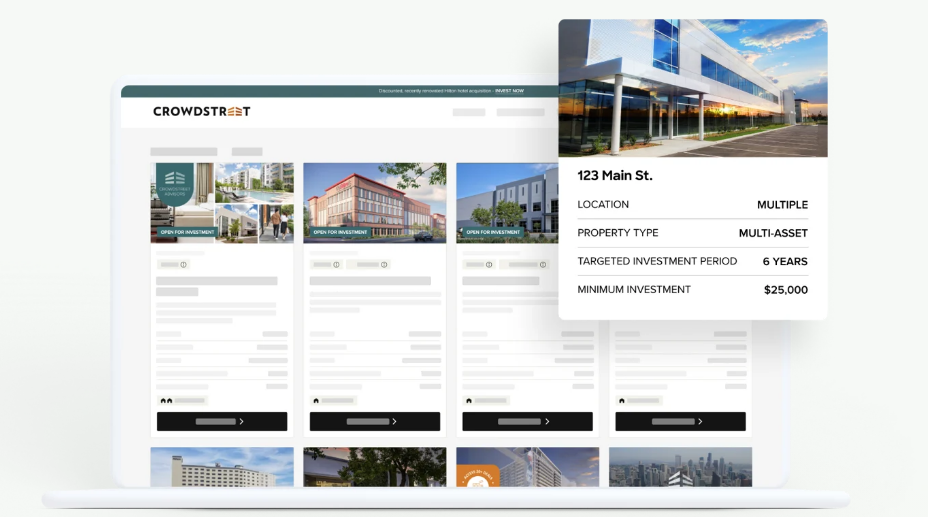
CrowdStreet has established itself as a leading platform for accredited investors looking to invest in high-quality, institutional-grade U.S. commercial real estate. The platform offers access to a wide range of projects, including office buildings, retail spaces, and multifamily developments. Despite the name, it’s not intended for the general public due to the high minimum investment.
Minimum investment requirements: $25,000 (accredited investors only).
CrowdStreet is best suited for experienced real estate investors seeking substantial investments in commercial properties.
Arrived

Arrived has created a niche in the U.S. residential rental and vacation home markets, making it easy for investors to buy shares in individual properties. The platform manages all aspects of property maintenance and tenant relations, allowing investors to earn rental income without the responsibilities of being a landlord.
Minimum investment requirements: $100 per property unit.
Arrived is perfect for investors looking for a low-maintenance way to invest in stable, income-generating residential properties in the US real estate market.
GetStake
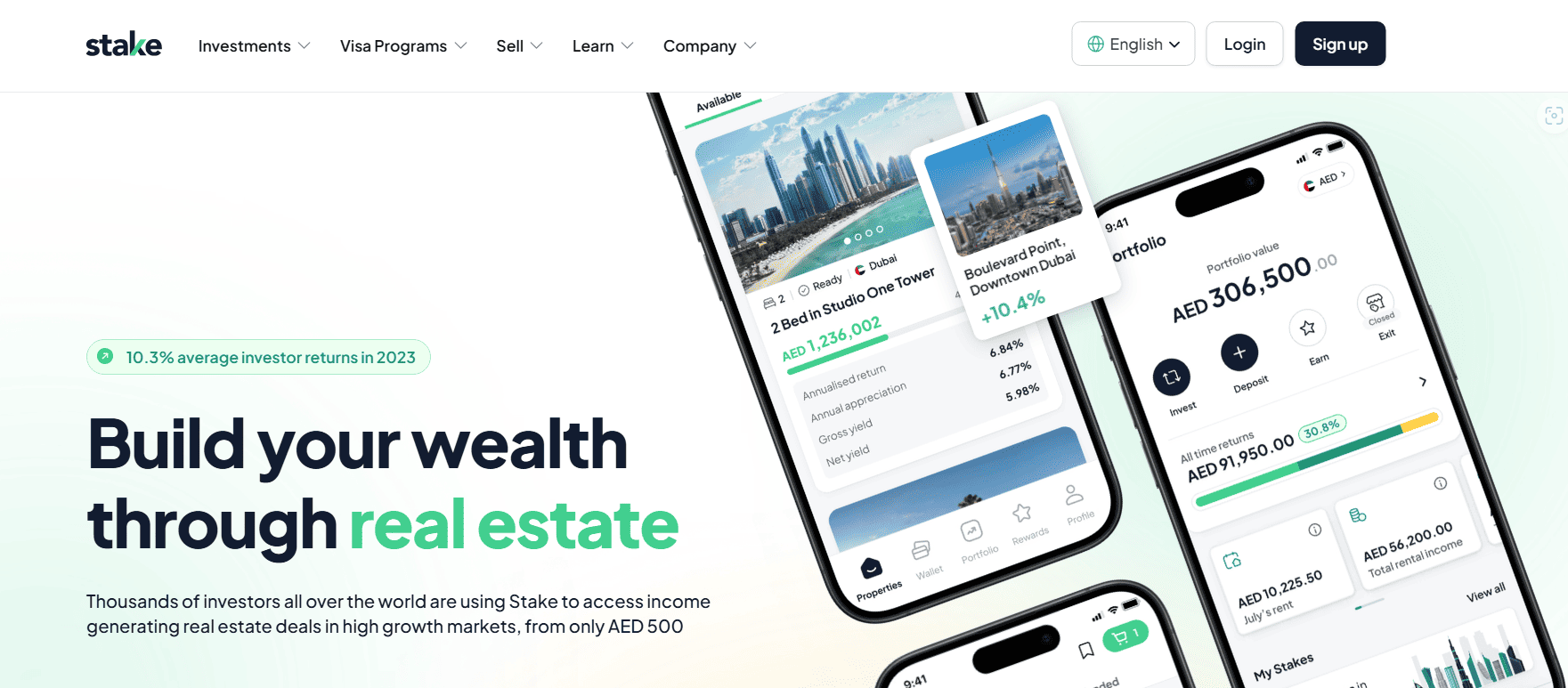
GetStake is a platform focusing on real estate crowdinvesting in the MENA (Middle East and North Africa) region, with a strong emphasis on the rapidly growing Dubai market. The platform offers a mix of residential and commercial properties, allowing investors to tap into one of the world’s most dynamic real estate sectors.
Minimum investment requirements: 500 AED (~$136).
GetStake is ideal for investors looking to gain exposure to the MENA region’s burgeoning real estate opportunities, particularly those interested in the lucrative Dubai market.
Crowdinvesting Case Studies
Case studies are a powerful way to understand how different crowdinvesting platforms work in practice. By examining real-world examples, we can see how various factors—such as investment type, location, and platform features—affect the outcomes for investors. Below, we explore case studies from two prominent platforms: CrowdStreet and Binaryx Platform.
CrowdStreet Case Study
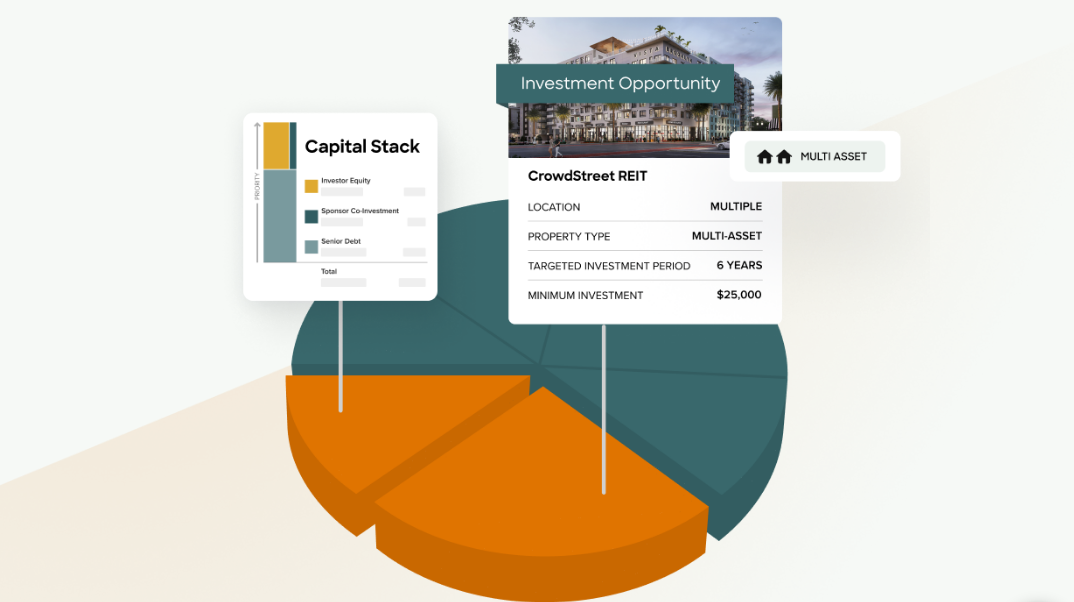
CrowdStreet is a leading platform for accredited investors, focusing on high-quality U.S. commercial real estate projects.
Investment: $30,000 into the development of a luxury apartment complex in Seattle, Washington, with projected returns of 65–80% overall ROI over a 6-year holding period.
Potential Outcome: You invested $30,000 in the development of a luxury apartment complex located in a high-demand area of Seattle. The project involved constructing a modern residential building with premium amenities to attract high-income tenants. During the 6-year holding period, you received quarterly distributions from rental income generated by the leased units. These distributions provided a steady stream of passive income. At the end of the sixth year, the property was sold at a significant profit due to appreciation in property value and strong market demand. This resulted in a total return of 72% ROI, bringing your total profit to $21,600 on top of your initial investment.
Binaryx Platform Case Study

Binaryx is a global platform offering fractional real estate investment opportunities in diverse regions, including Bali and Montenegro. On the Binaryx platform, you can invest in both rental properties and real estate under construction. Here’s how a $30,000 investment might look when spread across various projects.
Investment Portfolio:
- $7,500 in a rental villa in Bali with a 16.3% APR
- $7,500 in another rental villa in Bali with a 10.5% APR
- $7,500 in a construction project in Bali with an initial 17% ROI over 11 months, followed by a 15% rental APR after construction completion
- $7,500 in a construction project in Montenegro with an initial 19.24% ROI over 7 months, followed by an 8% rental APR after construction completion
Potential Outcome: Your $30,000 investment was allocated across rental properties and construction projects in Bali and Montenegro. Over the first two years, you earned $8,463 in profit from a combination of rental income and returns on the completed construction projects. By the end of the fifth year, your total profit amounted to $21,180, demonstrating the potential for strong returns through strategic diversification across multiple real estate opportunities on the Binaryx platform.
- First-year total: $1,222.50 + $787.50 + $1,275 + $1,443 = $4,728
- Second-year total: $1,222.50 + $787.50 + $1,125 + $600 = $3,735
- 2-Year Profit: $4,728 + $3,735 = $8,463
- 5-Year Profit: $21,180
While the overall outcome turned out to be greater with CrowdStreet, the Binaryx Platform option provided greater flexibility and diversification. By spreading investments across multiple properties and regions, Binaryx allowed for a balanced real estate portfolio with varied income streams, making it an appealing choice for investors looking to minimize risk through diversification.
Pros and Cons of Real Estate Crowdinvesting
Real estate crowdinvesting offers a unique opportunity to invest in property with a lower financial commitment and reduced hassle, but it’s important to weigh these benefits against the potential drawbacks. Understanding the pros and cons can help you make more informed decisions about whether crowdinvesting fits into your overall investment strategy. Here’s a closer look at the pros and cons of real estate crowdinvesting:
Pros
- Lower Entry Barrier. One of the most significant advantages of real estate crowdinvesting is the lower entry barrier. Traditionally, real estate investments required substantial capital, often putting them out of reach for the average investor. Crowdinvesting platforms have changed that by allowing you to invest with as little as $10 or $50, depending on the platform.
- Diversification. Crowdinvesting allows investors to diversify their real estate portfolios by spreading their investments across multiple properties and even different geographical regions. Instead of putting all your capital into a single property, you can own small shares in various projects, reducing the risk associated with any one investment.
- Passive Income. Real estate crowdinvesting offers the potential for passive income without the headaches typical of real estate. You can earn annual returns from rent payments without the need to manage the property yourself. Professional management teams handle all the day-to-day operations, including maintenance and tenant relations, making it a hassle-free investment.
- Investors Access to Premium Properties. Crowdinvesting platforms often provide access to high-quality, premium real estate projects that would typically be out of reach for individual investors. These might include commercial properties, luxury developments, or large-scale residential projects that offer significant return potential for you.
- Liquidity Options. Some crowdinvesting platforms offer secondary markets where investors can sell their shares before the property is sold or the project is completed. This provides a level of liquidity that is often lacking in traditional real estate investments, giving you the flexibility to exit your investment if needed.
Cons
- Platform Dependence. Investors are heavily reliant on the crowdinvesting platform they choose. The success of their investment is tied to the platform’s ability to source and manage profitable real estate projects. If the platform faces financial difficulties or fails to properly manage the investments, you may suffer losses.
- Limited Control Over Property. When you invest through a crowdinvesting platform, you have little to no control over the management of the property. The platform or property manager usually handles decisions about the property's operations, leasing, and sale, leaving investors with a passive role.
- Additional Fees. Crowdinvesting platforms often charge various fees, such as management fees, transaction fees, and sometimes even performance fees. These fees can eat into the returns on your investment, especially if the property doesn’t perform as well as expected.
Conclusion
Real estate crowdinvesting has opened up new avenues for individuals to enter the property market with relatively low capital, offering the potential for diversified portfolios, passive income, and access to premium real estate projects. The returns can be substantial, as seen on real estate crowdfunding platforms like CrowdStreet and Binaryx Platform; the second can also provide valuable flexibility and global diversification. However, it’s crucial to consider the platform’s reliability, potential fees, and your own investment goals when deciding to participate in crowdinvesting. Whether you’re a seasoned investor or just starting out, understanding both the opportunities and risks can help you make informed decisions in the growing world of real estate crowdinvesting.
Articles you may be interested in

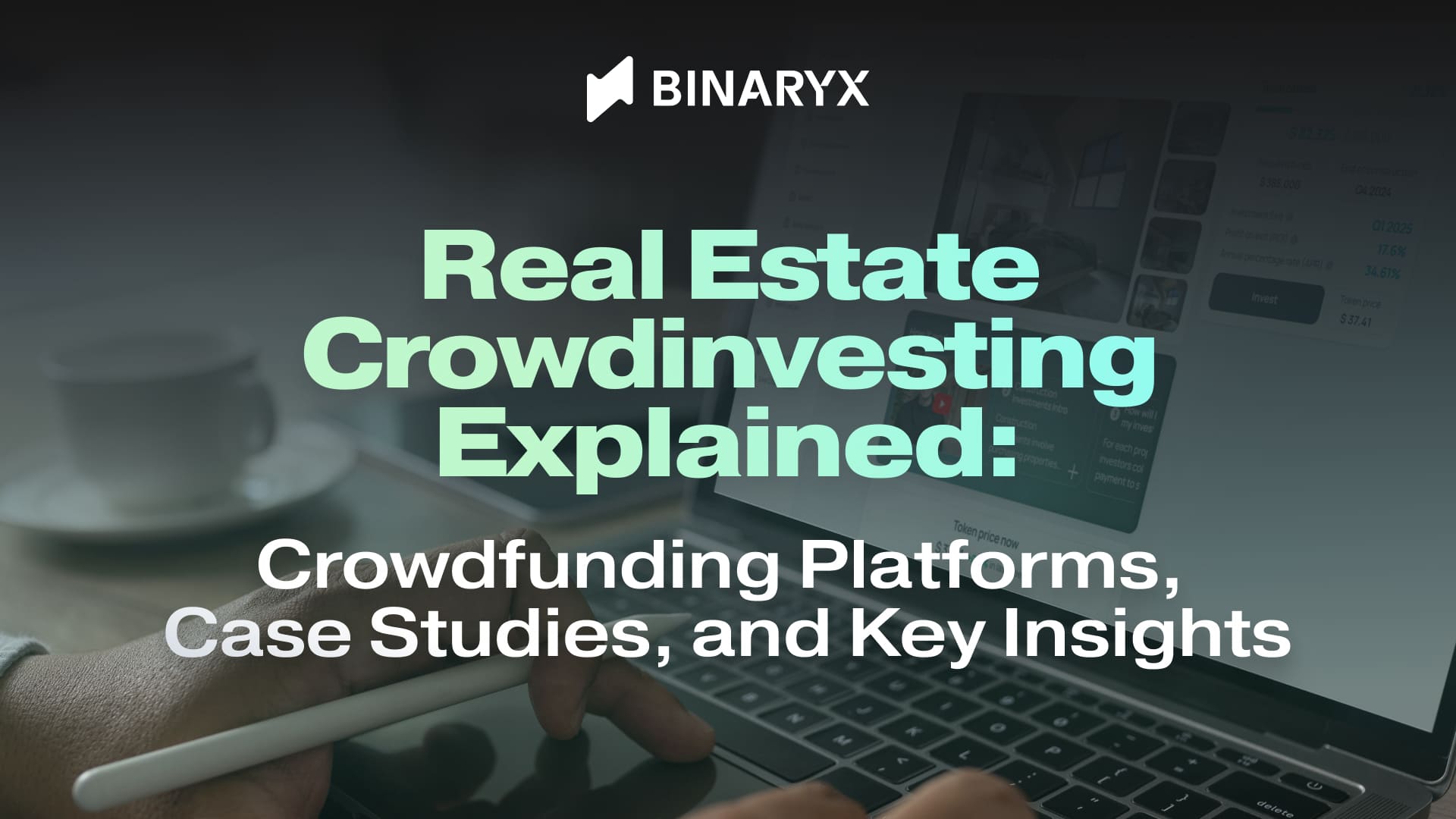
.jpg)
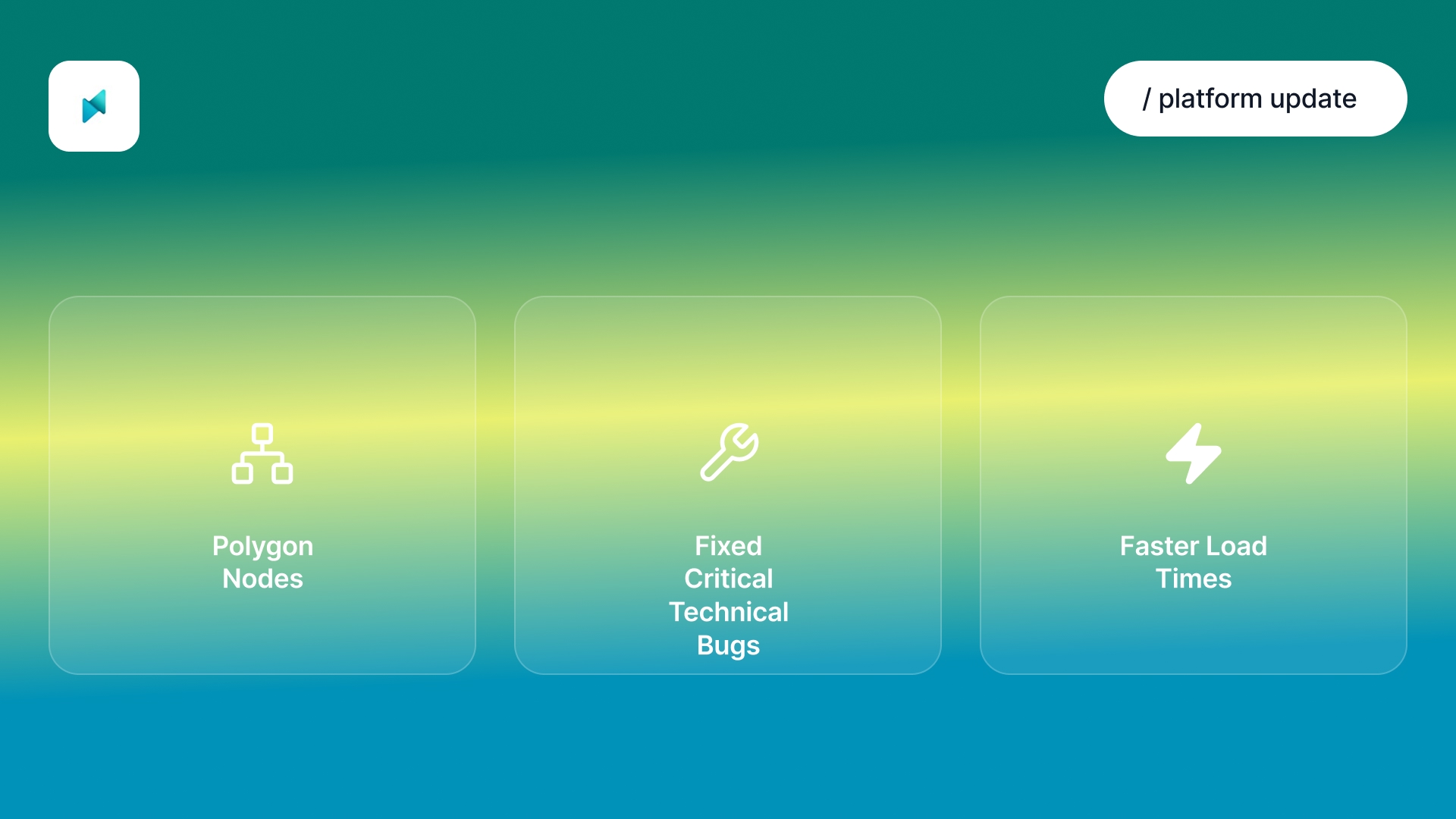

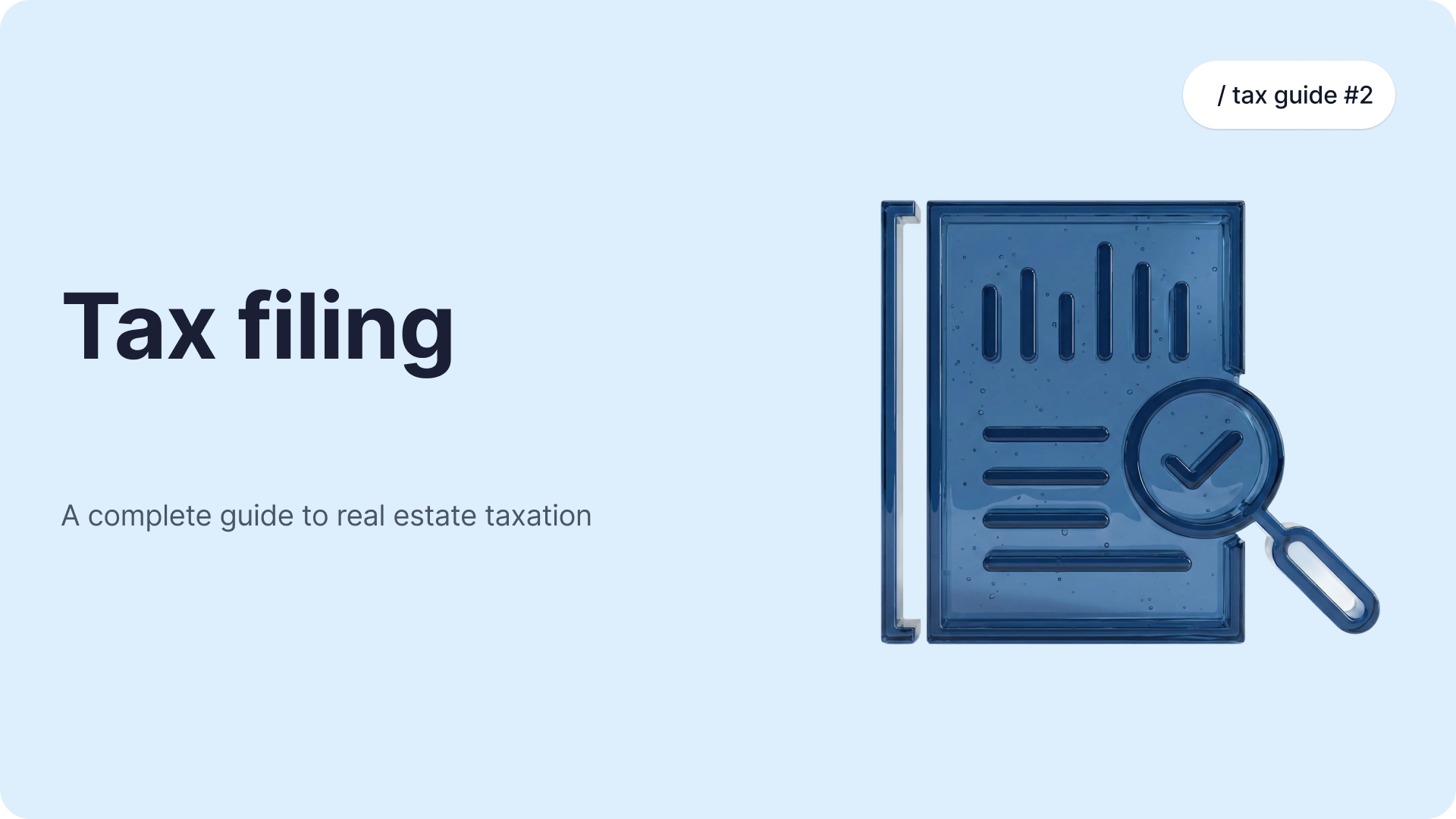
.png)
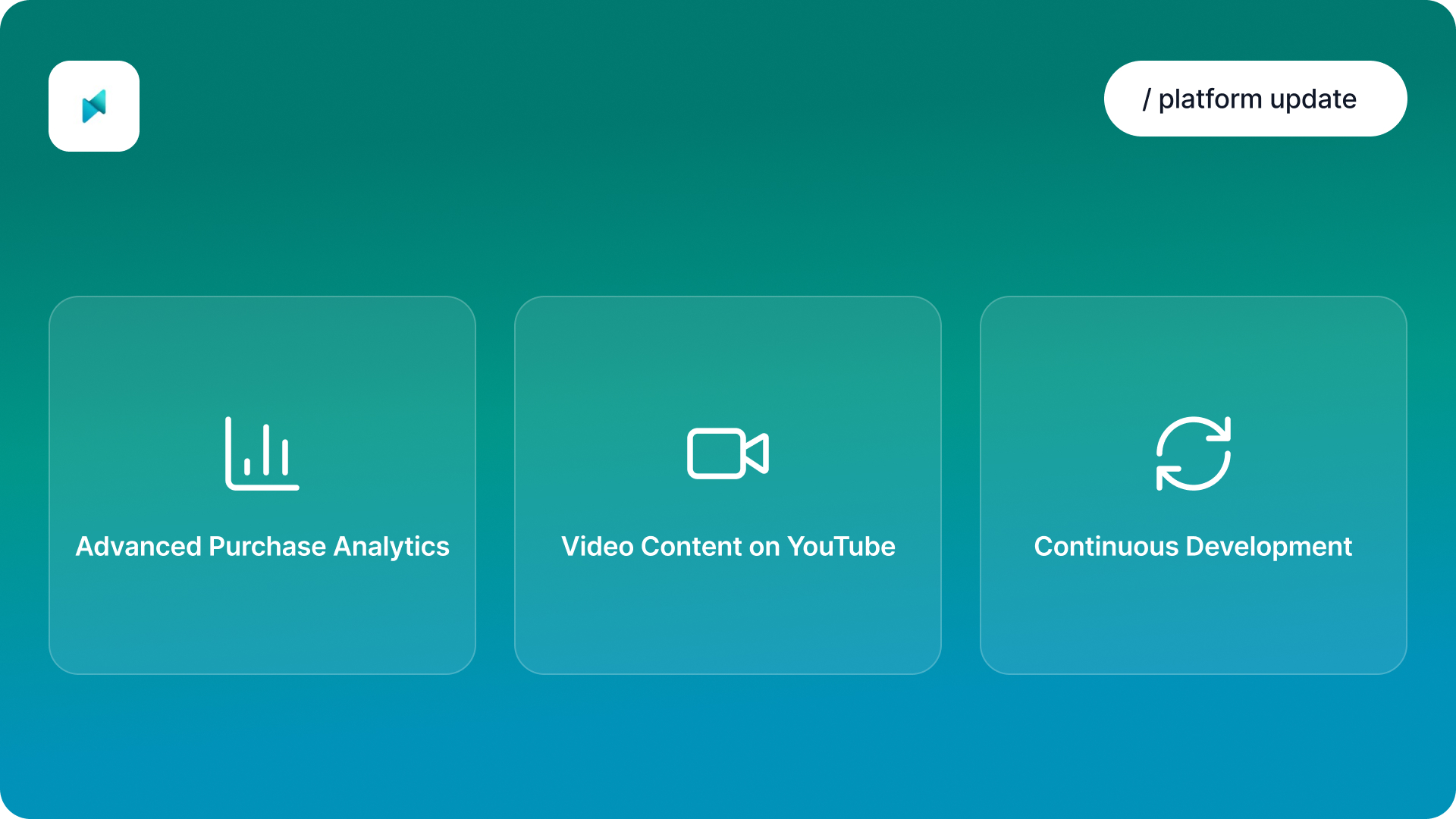
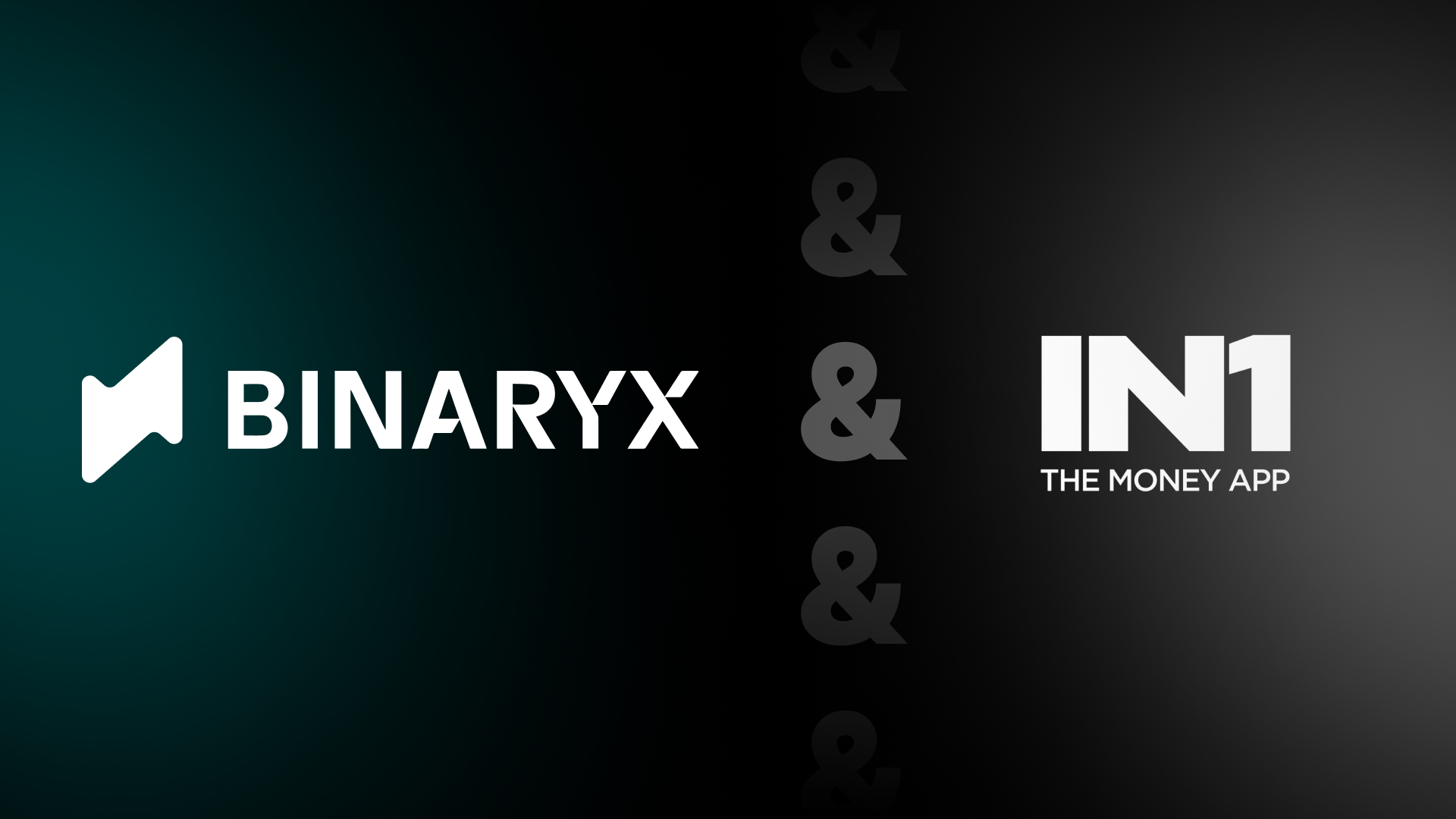
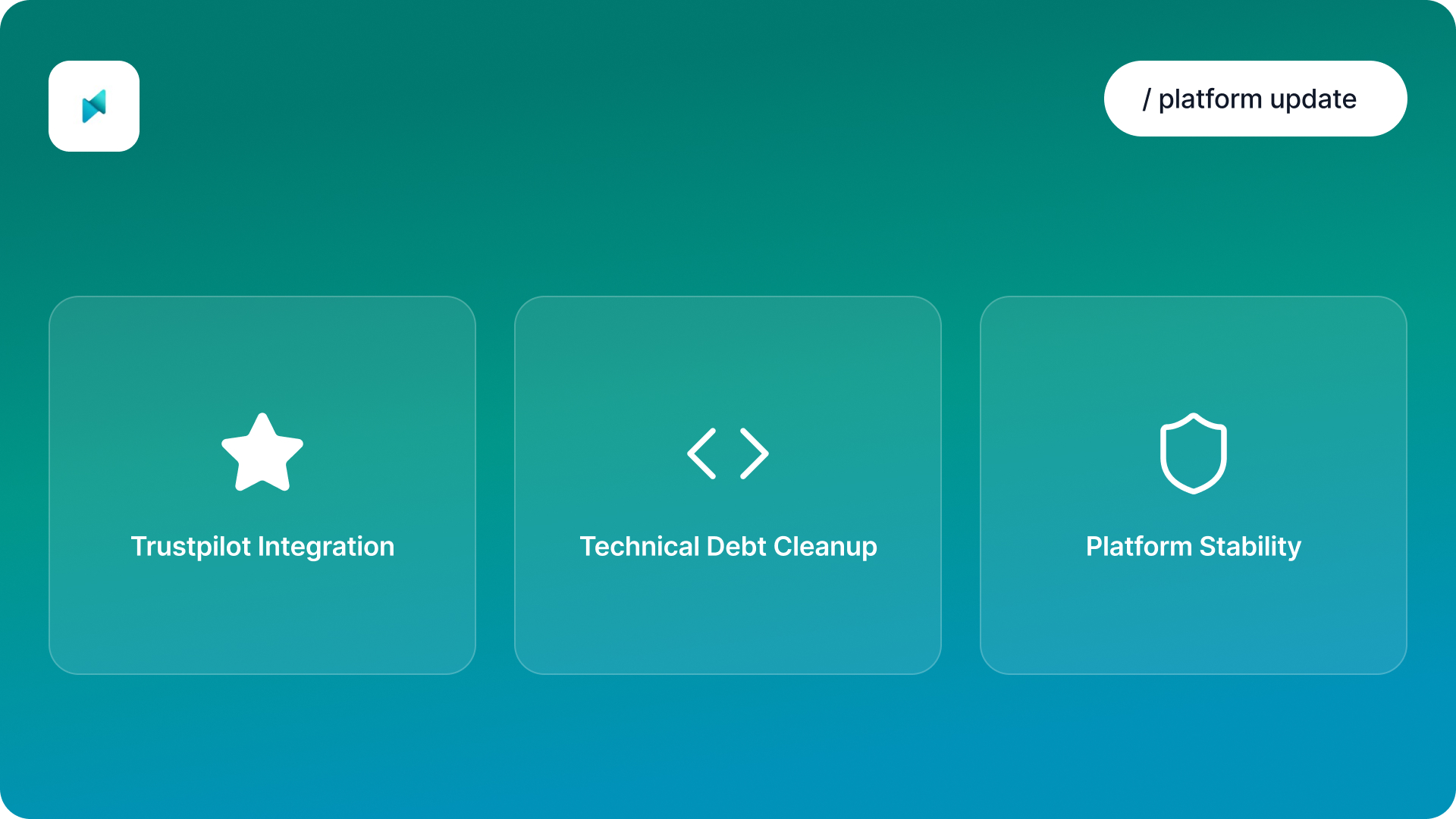
.png)

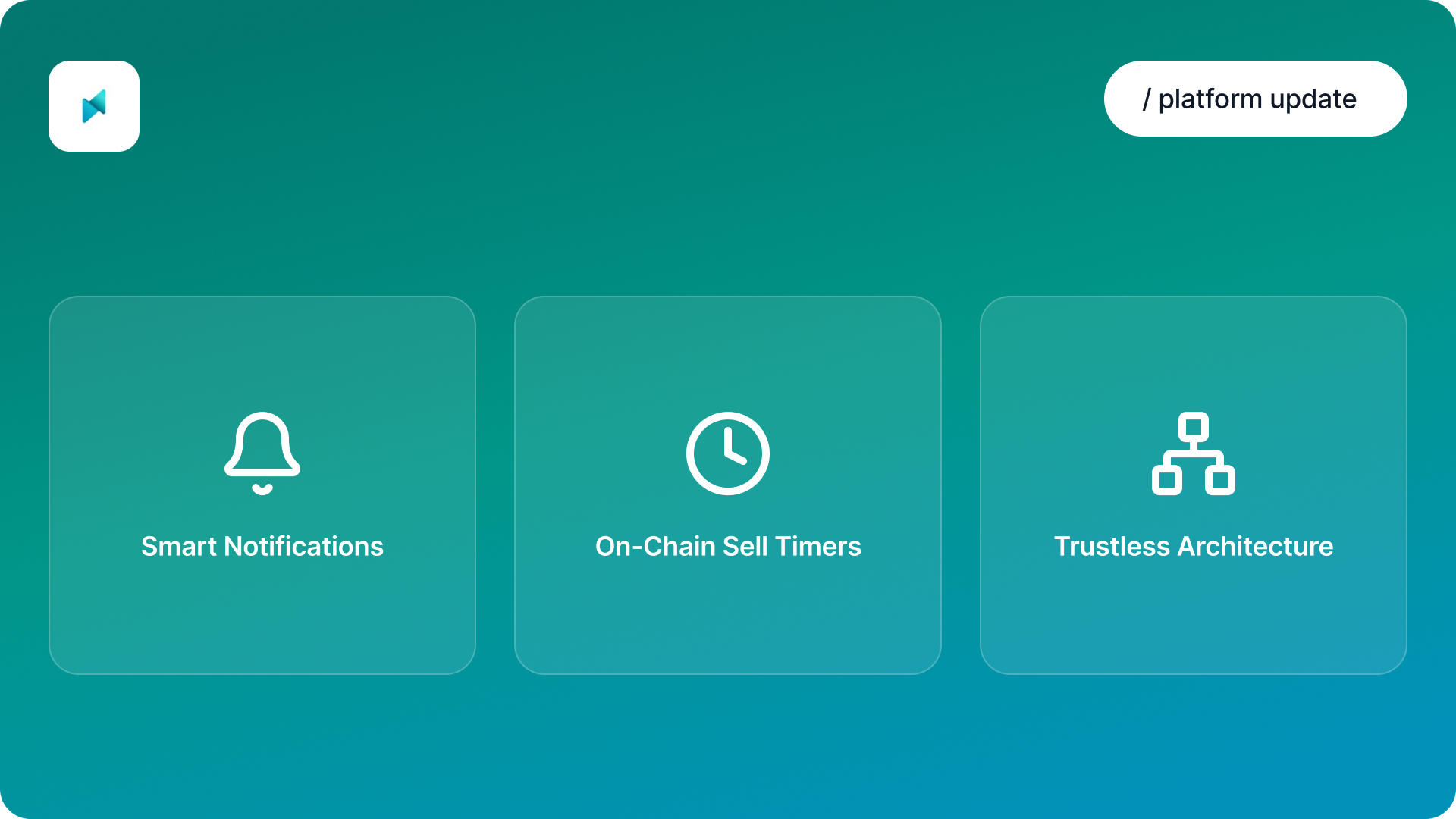

.webp)